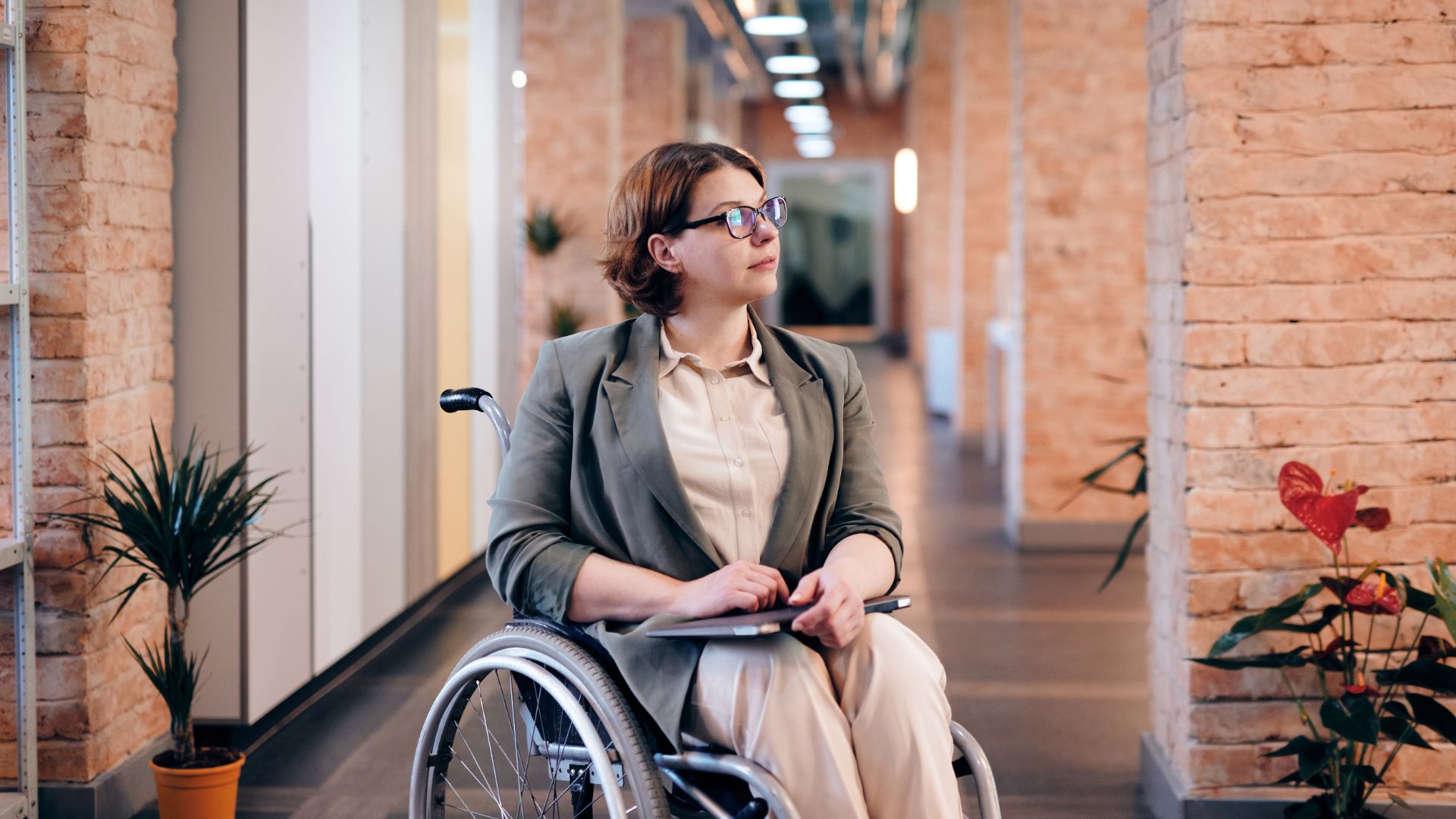In 2017, Alice Delapéhaimère was the victim of a car accident that left her partially hemiplegic. For Madmoizelle, she thinks back to how this event disrupted her relationship with her body, with her sexuality, but also how it changed the way others looked at her.
My name is Alice, I am 31 years old and on 31 August 2017 I had an AVP (public road accident).
I was on my way home from my summer job. That day it began to rain very heavily. So I made the (shameful) choice to take a path that seemed safer to me. However, at one point the road became a highway. I entered an acceleration lane. Unfortunately, I hydroplaned in the acceleration lane to return to the freeway. And just at that moment a truck arrived. My car lost the duel. She was completely destroyed.
I lost consciousness immediately. From what I was told, I was airlifted to the hospital. I stayed in a coma for a month, then I remained in a neurovegetative state for five months. I have no memory of the coma, nor of the subsequent one. I didn’t have a rude awakening. So I had time to assimilate my state. I have severe cerebellar syndrome which deprives me of balance – so I move around in a wheelchair – and partial hemiplegia on the right.
“The way others see me has changed”
Before the accident I was full of complexes. The accident did not erase them. I always find myself too tall (1.82 m) and too thin (61 kg on the best days). But now the wheelchair is a distraction. People don’t really pay attention to me anymore. The armchair takes up all the space.
I decided not to see my disability. It’s not my view of myself that has changed, it’s that of others. The disability is so visible at first glance that I have the impression that after a quick analysis of my physique nothing else is noticeable.
But I do nothing to change the perspective of others and honestly, I don’t care what they think. First of all I would like to please myself.
I have never been in love with myself. Now the accident has made things even worse.
I have something else, something more, to hate. But I tolerate myself. And I try to be a little more flexible, tender, kind to myself.
I have to work my body every day. Having real work done on him means I can tolerate him better. But I’m not yet at the point of leaving the door open to a third person.
After the accident, I had to relearn how to do everything. Even the most basic things like breathing and swallowing. So it’s been a very long effort in terms of taking care of myself. I had to relearn how to brush my body, hair and teeth on my own.
Once I acquired this, I also got into the habit of going to the pedicure, the beautician, the hairdresser, the beauty salon… It remains a very personal way of “taking care of myself”.
No longer having sexuality, a personal choice
On the other hand, after the accident, I have decided not to have sexuality anymore. I guess others must be disgusted. Plus, it tires me to have to relearn it with a disability.
It is therefore impossible for me to have sex. But I don’t miss it more than that. Being a personal choice I can’t complain. It was harder to bear the first year. Now I am hardened and convinced.
A few months ago I was still buying intimate toys “just in case”. If I’m ever tempted (which hasn’t happened yet), I have a plan to fulfill my desires myself. In fact, it is impossible for me to delegate this task to third parties. I’m single with no end date..
Being disabled you have to constantly fight for your autonomy and I would like to be as independent as possible.
Even though I’m no longer sexually active, I notice it the sexuality of people with disabilities is clearly taboo.
I myself have put up barriers. Now I hate sexuality; I no longer want and believe that able-bodied people do not necessarily have a desire for a person in a wheelchair.
Representing disability in its plurality
But it is precisely to lift this taboo – which I also impose on myself – that I want to talk about it. I would like to contribute to normalize the sexuality of a person with disabilities. If it is collectively accepted, Maybe I could tolerate having a sexuality too. I realize that I’m probably too focused on the approval of others, but I don’t know how to get rid of it.
So it’s true, people with disabilities are increasingly represented in the media. But I notice that people in the media remain “selected”. Disabled, but not too much. Just the wheelchair, but nothing more.
However, there is still a barrier to representing the sexuality of people with disabilities. I particularly regret the fact that the different disabilities are not really all represented. This gives the impression that a person with a disability is necessarily in a wheelchair and that their disability is only physical. Gold, there is a very wide variety of disabilities, visible or not, physical or otherwise.
This is why I wanted to testify. To try to make things happen. I can imagine the task is immense. But I already see that, little by little, mentalities are changing.
You can follow Alice Delapéhaimère on her blog and on her YouTube channel.
Do you like our articles? You’ll love our podcasts. All our series, urgently listen to here.
Source: Madmoizelle
Mary Crossley is an author at “The Fashion Vibes”. She is a seasoned journalist who is dedicated to delivering the latest news to her readers. With a keen sense of what’s important, Mary covers a wide range of topics, from politics to lifestyle and everything in between.





